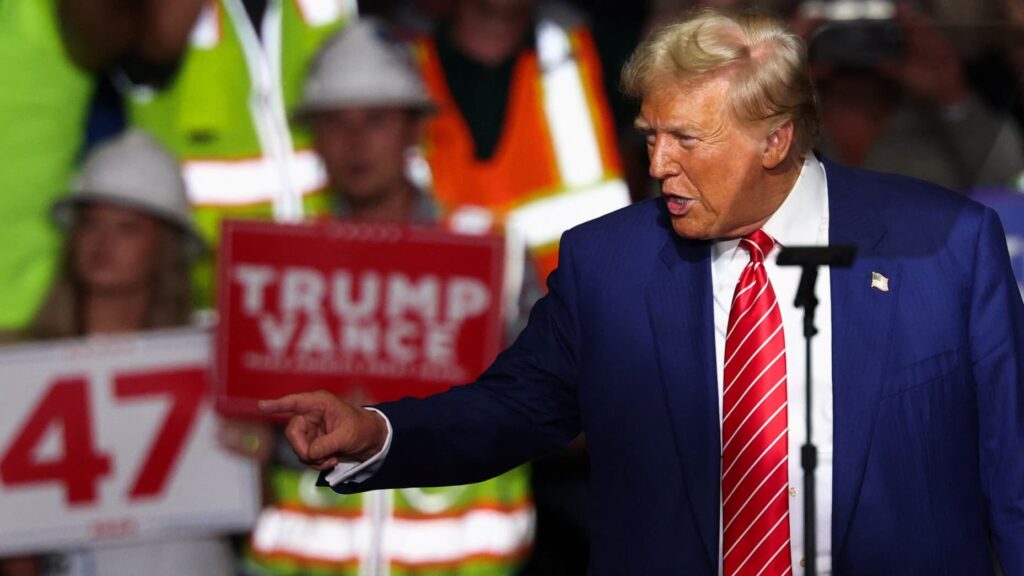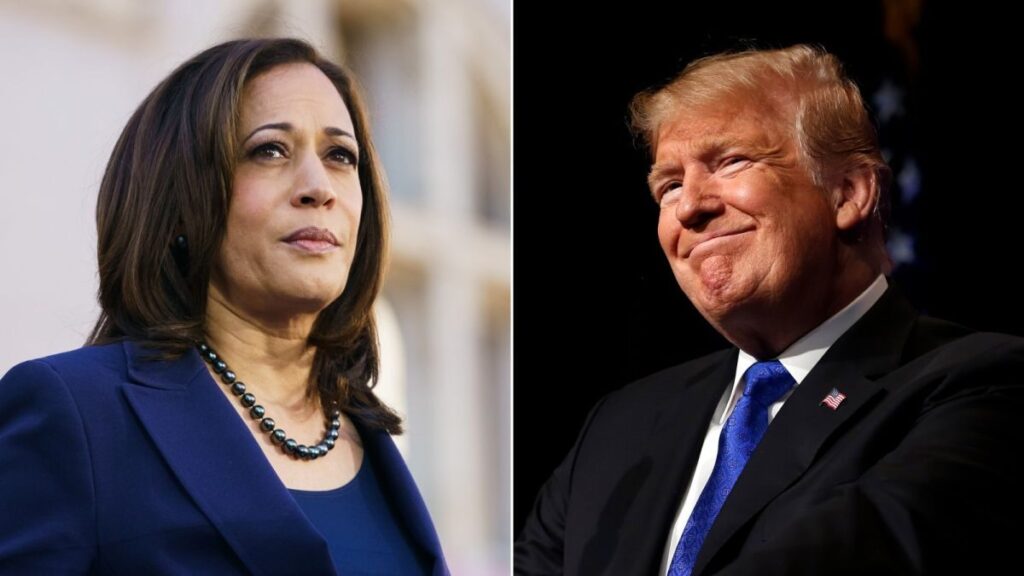
Republican officials are expressing concern over the lack of resources that Donald Trump’s campaign has allocated for its voter turnout operation in battleground states. They feel that efforts to make up for this shortfall through political action committees have been initiated too late.
For the 2024 election, the Republican National Committee had big plans for their field operation. They aimed to have a significant presence in Pennsylvania, a state crucial for their success, with approximately 90 staffers.
However, the Trump campaign changed its plans when it gained control of the RNC in March. Instead of focussing on field operations, the campaign shifted its attention to addressing alleged voter fraud and implementing a voter turnout strategy that involved political action committees and dedicated Trump volunteers.
According to people familiar with the situation, the Trump campaign has spent less money on its ground operation in battleground states. Republican officials have mockingly remarked that the Trump operation is more akin to a midterm cycle in terms of size than a presidential one.
According to the Guardian, the Trump campaign claims that their field operation in 2022 is larger than the RNC’s. The RNC had 350 staffers in battleground states and 50 in Pennsylvania, as per the midterm data obtained by the Guardian.
However, it seems that the Trump campaign is significantly smaller compared to the Harris operation. The Harris operation is reported to have approximately 375 staffers in Pennsylvania alone. Democrats have dedicated years to strengthening their voter turnout efforts in the state, recognising its potential to determine the outcome of the election.
The Trump campaign also brushed off criticism about its presence, asserting that it is inconsequential as long as their “Trump Force 47 captains” and the Pacs collectively reach out to sufficient numbers of low-propensity Trump voters, particularly in rural areas.
Indeed, it is true that the RNC previously prioritised suburban areas for their door-to-door efforts, as they could cover more ground in a shorter amount of time compared to rural areas, which they instead inundated with a barrage of mail advertisements.
However, the Pacs, which aim to bridge the gap, have been experiencing delays in getting started, as reported by individuals who have direct access to the data for organisations such as America Pac, Turnout for America, Turning Point Action, and America First Works.
According to sources, there has been a recent increase in hiring, indicating that efforts are being made to reach out to Trump supporters who may need multiple reminders to return their ballots.
The current situation implies that the formal Trump operation for the 2024 election is relatively small in size. Additionally, the effectiveness of the doorknockers and canvassers recruited by the Pacs might be lower compared to previous presidential cycles.
According to current and former employees, the Trump campaign has been slow to the ground this cycle due to a messy situation at the RNC.
When the Trump campaign assumed control of the RNC, it enforced a hiring freeze and required the terminated staff to reapply for positions. According to the employees, Trump’s focus shifted towards alleged mass voter fraud, leading to a redirection of resources towards “election integrity” efforts.

However, once Kamala Harris emerged as the nominee and started to gain ground in important polls, particularly after Joe Biden dropped out of the presidential race, it became evident that the less glamorous work of persuading potential voters to actually vote could have a significant impact in a tightly contested election.
The Trump campaign made the decision to outsource its ground game, following the Federal Election Commission’s approval for campaigns to coordinate voter turnout efforts with the Pacs. This allowed Trump to allocate his resources towards rallies and legal expenses.
With the change in the rules, the Trump campaign saw outsourcing as a safer option compared to when Governor Ron DeSantis used a Super Pac in the Republican primary and faced a significant defeat. Interestingly, Phil Cox and Generra Peck, who were previously primary aides to DeSantis, are now in charge of field operations for Trump at America Pac.
However, the Trump campaign has been discreetly focussing on strengthening its own paid staff in battleground states and has placed greater emphasis on the Trump Force 47 captains programme, decreasing their dependence on the Pacs.
The Trump Force 47 programme follows a proven formula that was successful in the Republican primary. Dedicated Trump supporters are given exclusive Maga hats and other merchandise to encourage their neighbours to vote.
Every volunteer is given a list of 10 neighbours to personally mobilise from the start. If they achieve the desired goal, they are rewarded with expanded lists that encompass individuals who are typically more challenging to engage through traditional voter outreach strategies like television advertisements, mail campaigns, and phone banks.
According to a Trump official, Trump Force 47 prioritises giving significant attention and resources to mobilising infrequent or ‘sometimes’ voters. In contrast, the RNC’s ‘Neighbourhood Team Leader’ model treated every voter contact as equally important.
It remained unclear why the Trump Force 47 model was deemed superior in targeting low-propensity voters compared to the RNC’s long-standing use of machine learning, apart from its role in justifying the abandonment of the plan.
Republican officials have expressed concerns about the programme, suggesting that the volunteers may be motivated to expedite the process solely to receive the hats, similar to other get-out-the-vote initiatives. They have also pointed out that the voter turnout for Trump in the primaries was not particularly impressive.
If the Trump campaign is successful, it will serve as a blueprint for future campaigns. If it fails, James Blair will be to blame,” one former RNC staffer said, referring to the Trump campaign’s political director.